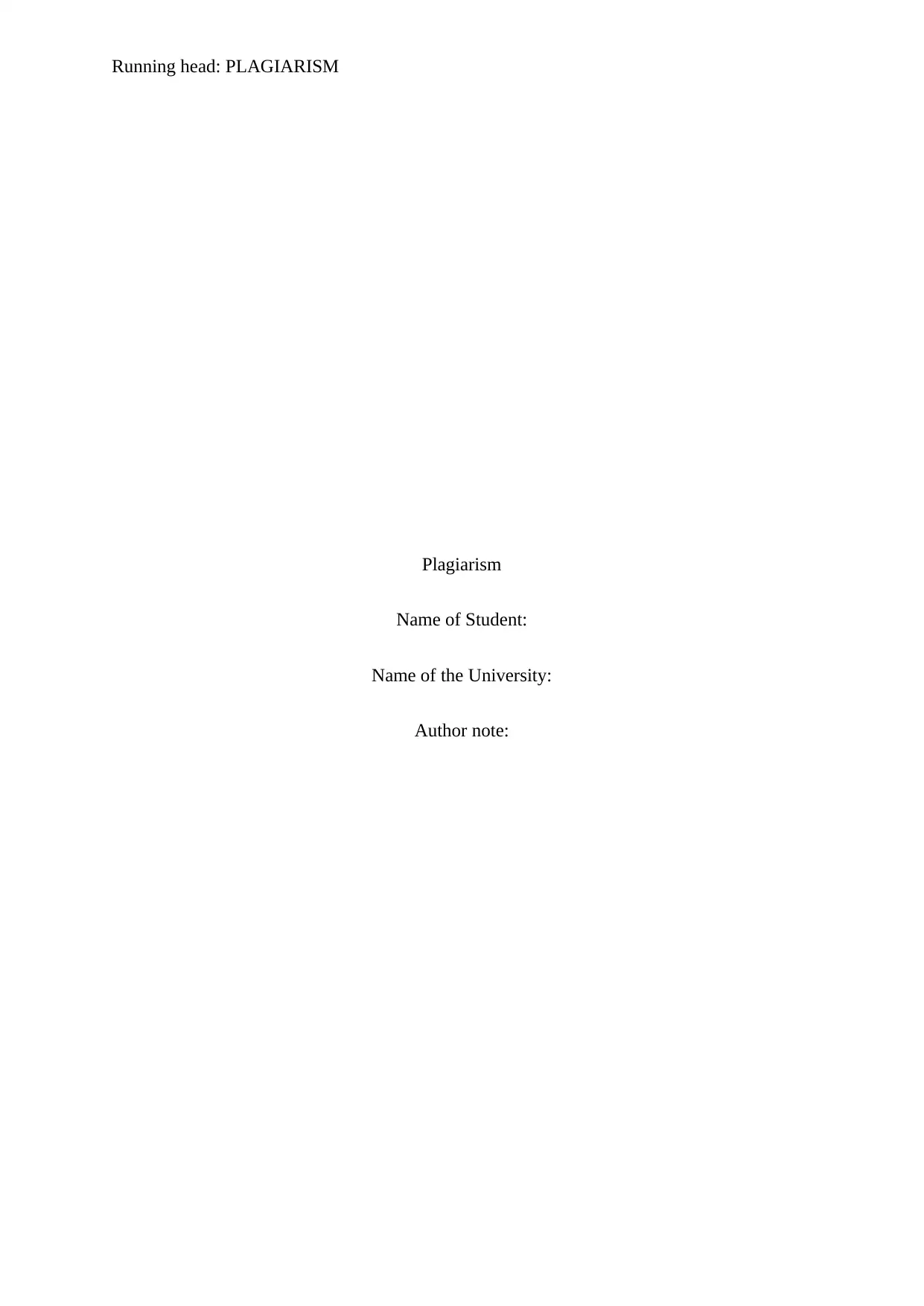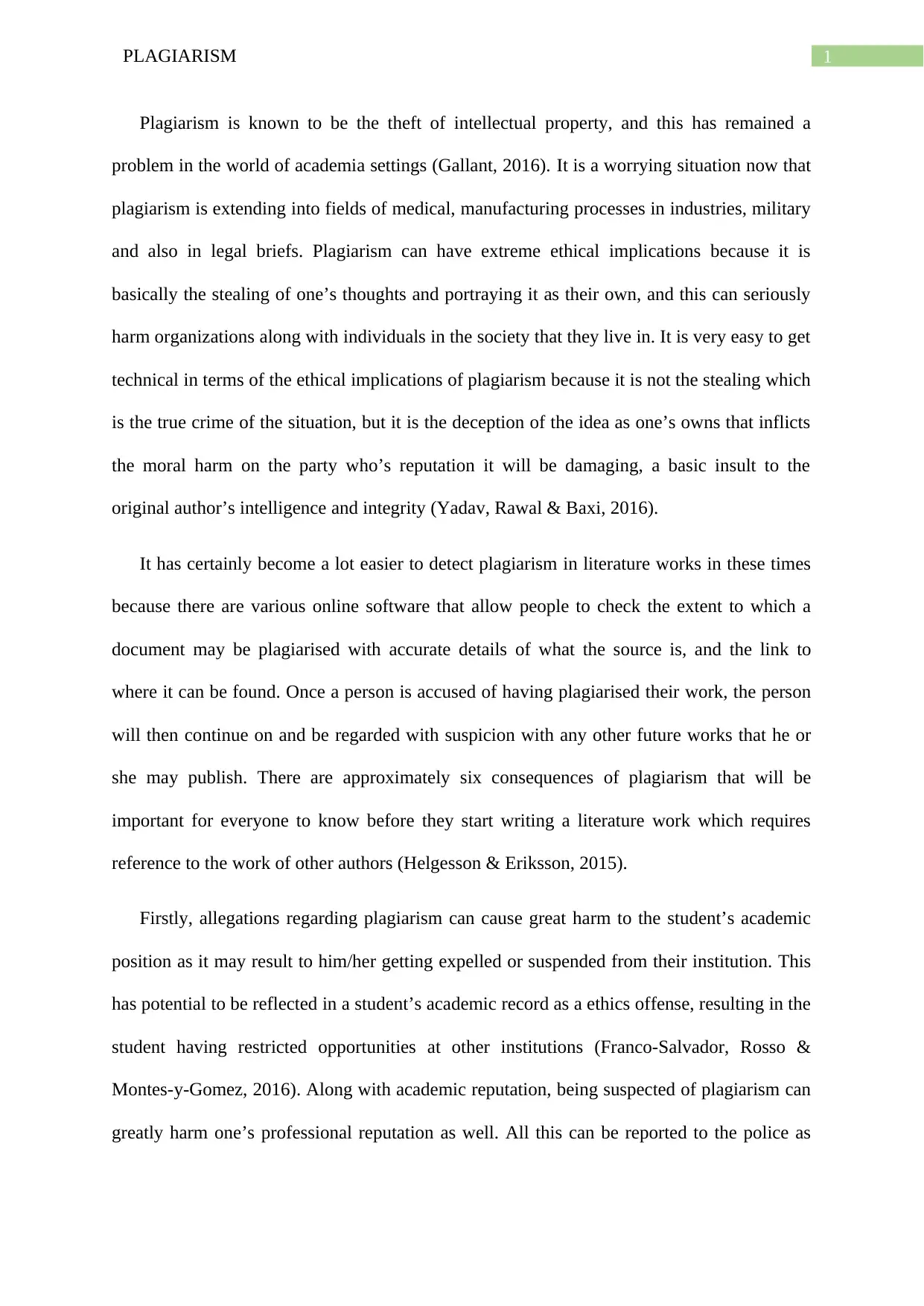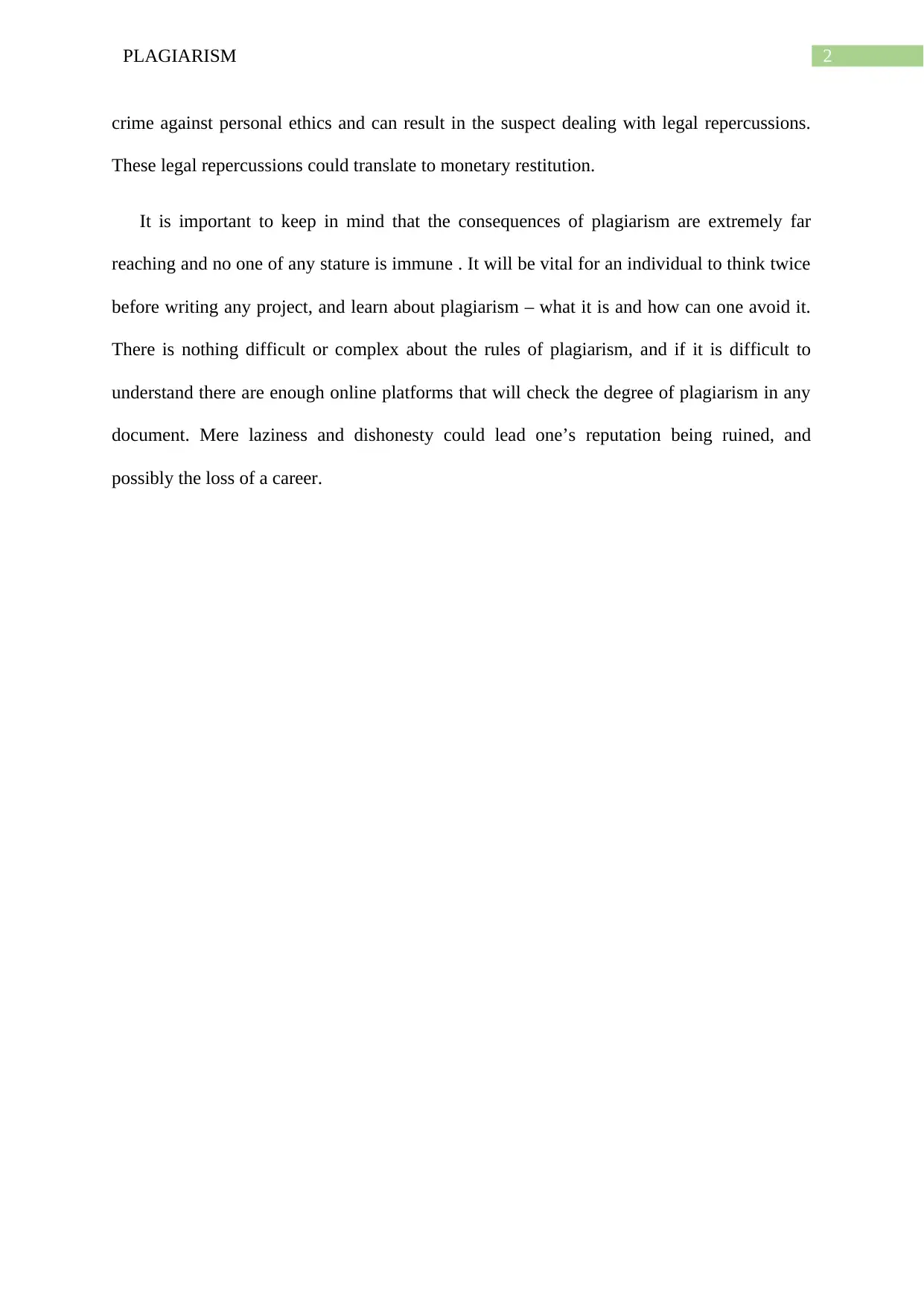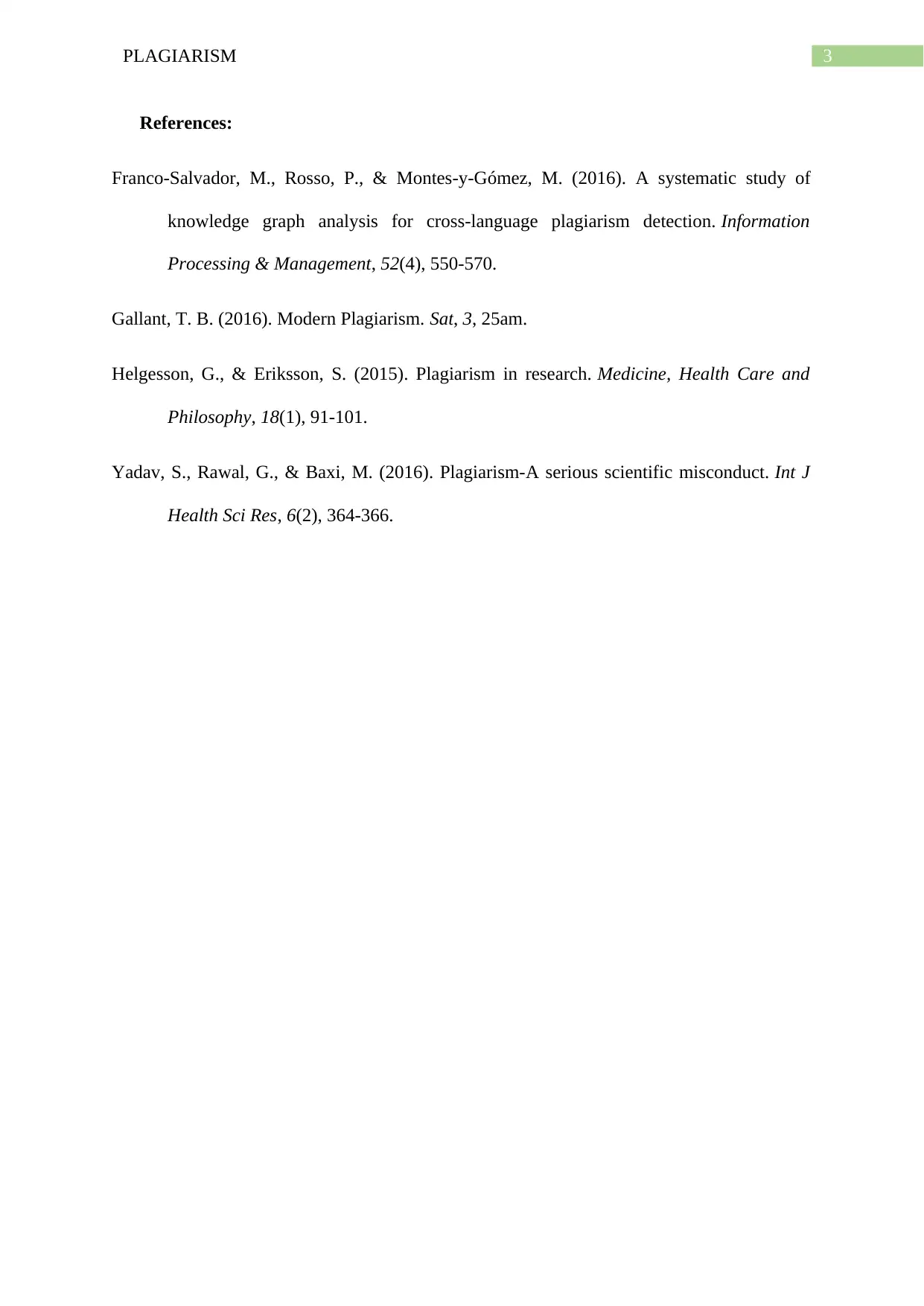Ethical Dilemmas: Plagiarism and Researcher Responsibilities
VerifiedAdded on 2023/01/17
|4
|686
|32
Essay
AI Summary
This essay addresses the critical issue of plagiarism within academic and research settings, exploring its ethical implications and potential consequences. The paper defines plagiarism as the theft of intellectual property, highlighting its detrimental effects on individuals, organizations, and the broader society. It emphasizes the ease with which plagiarism can be detected and the severe repercussions faced by those accused, including academic expulsion, professional damage, and legal actions. The essay also examines ethical dilemmas faced by researchers, such as the handling of confidential information and the proper attribution of sources. The paper underscores the importance of understanding plagiarism, adhering to ethical guidelines, and utilizing available resources to ensure academic integrity and responsible research practices. The consequences of plagiarism are discussed along with how to avoid plagiarism and the implications of this practice. The essay references relevant academic sources to support its arguments, providing a comprehensive overview of plagiarism in research.
1 out of 4











![[object Object]](/_next/static/media/star-bottom.7253800d.svg)